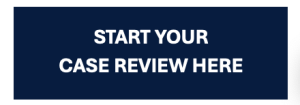The Coronavirus Aid, Relief, and Economic Security (CARES) Act, enacted in March 2020, was intended to provide emergency financial assistance to those suffering economic losses related to COVID-19. The government has spent trillions of dollars under the CARES Act and similar laws, such as the Paycheck Protection Program and Health Care Enhancement Act and the American Rescue Plan Act. These laws and programs are intended to help big businesses, small businesses, hospitals, other healthcare providers, universities, and other entities survive during the COVID-19 pandemic. These entities’ urgent need for this funding has left them susceptible to CARES Act fraud.
Entities that receive coronavirus funds must comply with government terms and conditions, and applications for those funds must be accurate. By reporting fraud involving government COVID-19 relief funds, whistleblowers play an essential role in ensuring that coronavirus pandemic relief allocated under the CARES Act and other laws and programs are spent appropriately.
The owner of a jet charter company paid $287,055 to resolve False Claims Act (FCA) allegations that he used funds from a Paycheck Protection Program (PPP) loan of over $1 million for his personal expenses.
The government has limited resources to determine whether recipients of the emergency loans and grants are truly eligible for the funds and whether the funds are properly spent. Whistleblowers are needed to provide inside information about COVID-19-related fraud that the government otherwise would never discover.
Whistleblowers who know of fraud involving government and state coronavirus funds may be eligible for rewards under the False Claims Act between 15-30% of the amount recovered due to their efforts. Some examples of the types of fraud that might qualify as FCA cases are:
-
- Falsifying information in an application for pandemic relief funds.
- Receiving pandemic relief funds for which the business or entity is not eligible to apply.
- Receiving pandemic relief funds the business or entity is not entitled to or qualified to receive.
- Using pandemic relief funds for improper purposes, such as unapproved or unallowable purchases or are used in violation of the terms and conditions of the government funding.
- Providing substandard or defective equipment (including personal protective equipment), pharmaceutical drugs, or services to the government or any healthcare provider or other entity that uses government funds for those purchases or services.
- Falsifying research funded by the FDA to get FDA approval for vaccines, antivirals, and other treatments for COVID-19.
- Paying kickbacks to get government contracts related to the coronavirus pandemic.
- Charging higher prices for government procurement orders than for similar orders by non-governmental/commercial entities.
- Failing to comply with the Buy American Act and the Trade Agreements Act
Paycheck Protection Program Fraud
The CARES Act provided forgivable PPP loans to small businesses to cover payroll and other specified expenses. It also included the Provider Relief Fund, which was designed to provide essential medical care to Americans suffering from COVID-19.
PPP loans have two important characteristics:
-
- PPP loans must be used for payroll costs, rent, and utilities.
- PPP loans may be forgiven if businesses dedicate at least 60 percent of the loan proceeds towards payroll expenses and spend the money on these expenses within a set period of time.
The urgent need for PPP funds has left the program susceptible to fraud and heavily reliant on whistleblowers with “insider” information to uncover PPP fraud. PPP borrowers who do not use PPP funds to retain workers and maintain payroll, lease, and utility payments, or who receive duplicate SBA funds, might not have their loans forgiven by the SBA and might be committing fraud – exposing them to liability under FCA whistleblower lawsuits.
SEC Whistleblowers and COVID-19 Fraud
Individuals who report securities law violations related to the coronavirus pandemic can do so confidentially through the Securities and Exchange Commission (SEC) whistleblower program. In addition to potential whistleblower rewards between 10-30%, the SEC whistleblower program also offers whistleblowers protection from employment retaliation.
Some of the types of COVID-19-related fraud and corruption that violate securities laws include:
-
- Fraudulent statements about a company’s business regarding COVID-19-related matters.
- Market manipulation.
- Insider trading.
- False disclosures in financial statements.
- Microcap fraud. Microcap stocks are particularly vulnerable to fraudulent investment schemes, including those related to the coronavirus crisis.
- Violations of the Foreign Corrupt Practices Act (FCPA), including bribes of foreign officials disguised as charitable donations.
- False financial disclosures or valuations attempting to hide undisclosed financial problems as related to the coronavirus.
- Improper sale and marketing of complex structured products to retail investors.
Contact Halunen Law CARES Act Fraud Attorneys
If you know about a COVID-19 fraud scheme, CARES Act fraud or any other form of fraud against the government, the whistleblower attorneys at Halunen Law stand ready to support you as you consider whether and how to report the misconduct. We’ve recovered billions of dollars working with whistleblowers who had the courage to do the right thing and millions of dollars in compensation for individuals who experienced retaliation.


